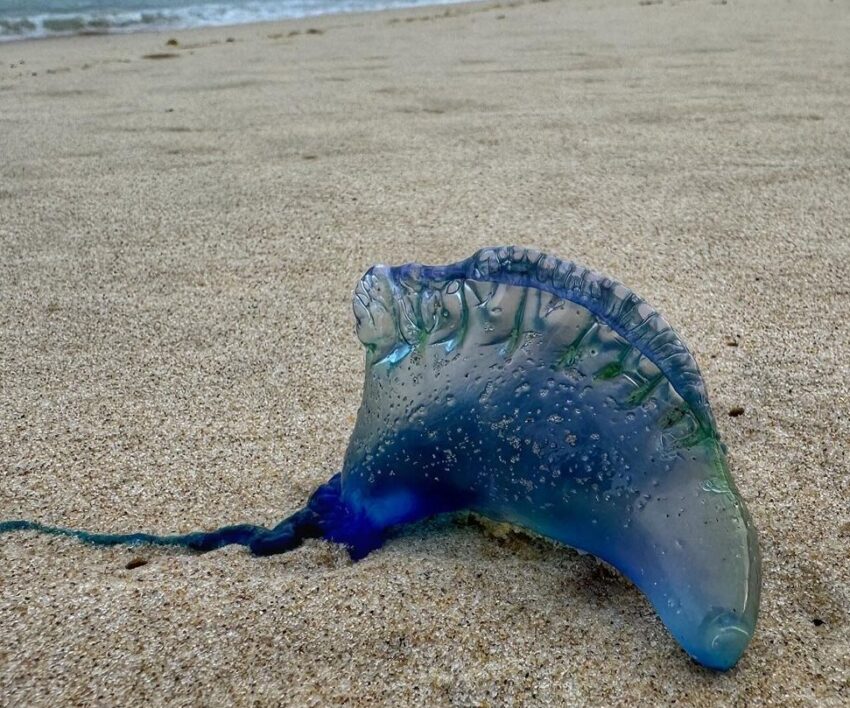
Spending a hot summer’s day lying on the beach, basking in the sun, and soaking in the surroundings is truly rewarding.
The atmosphere is simply amazing, with the sound of kids joyfully laughing as they chase one another around or build sandcastles. Listening to the sound of the waves is a natural pleasure that adds to the experience. It’s safe to say that a day at the beach is the ultimate holiday time activity!
However, it’s important to remember that the ocean can pose certain dangers. One of which is bluebottles.
What is a Blue Bottle?
According to Oceana – an international advocate for ocean conservation – “The bluebottle, or Indo-Pacific Man o’ War, is not a jellyfish but a siphonophore, which is a colony of tiny, specialized polyps working together as colonies. The bluebottle is easily recognized by its blue, gas-filled sac (pneumatophore) that floats on the water’s surface.”
It is important to be aware of the bluebottle’s tentacle, which possesses a venomous sting capable of causing pain and swelling to its prey and any perceived threats, including humans.
What to do if I have been stung?
Online health and wellness publication –Healthline – recommends these tips for dealing with stings.
- Do not rub the sting bite! This will only make things worse.
- To avoid further irritation, carefully wash and rinse the affected area with water.
- For effective relief, immerse the wound in hot water for 20 minutes. The heat will help kill the protein in the venom that causes pain. Don’t worry, research has proven this to be an effective treatment.
- If you don’t have access to hot water, don’t panic! A cold pack or cold water can also help alleviate the pain.
Also see: What to do when your female dog is on heat




